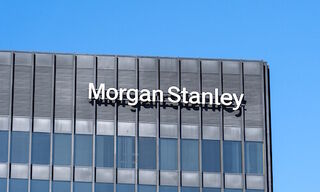With the Shenzhen-Hong Kong Stock Connect programme investors are looking at the second largest equity market globally by market cap, traded through Hong Kong, GAM's Jian Shi Cortesi writes.
Jian Shi Cortesi is a Portfolio Manager of Asian equities for Swiss asset manager GAM
The Shenzhen-Hong Kong Stock Connect programme will further increase the numbers of Chinese A-shares accessible to global investors. Improved access also increases the likelihood that Chinese A-shares will be included in the MSCI indices in the future.
Combining the A-shares included in the Shenzhen-Hong Kong and Shanghai-Hong Kong Stock Connect programmes, as well as Hong Kong-listed shares, we will be looking at the second largest equity market globally by market cap, traded through Hong Kong.
Less Concerned About Capital Outflows
The approval of the Shenzhen-Hong Kong Stock Connect programme is also viewed as a sign that China is less concerned about capital outflow, as China has stopped seeing large declines in its forex reserves in recent months.
The aggregate quota of the Stock Connect programme will be removed. The daily quota of Rmb 13bn/10,5bn for northbound/southbound trade will apply to Shenzhen-Hong Kong Stock Connect programme, the same as Shanghai-Hong Kong Stock Connect.
Trading at Much Higher Valuations
With the Shenzhen-Hong Kong Stock Connect programme, hundreds of Shenzhen listed A-shares, including some mid and small caps, could be bought by international investors.
However, Shenzhen-listed stocks are trading at much higher valuations than in Hong Kong and Shanghai, so international investors will likely to be highly selective and focus on large companies with good growth prospect and reasonable valuations.
Dividend Plays This Year
Mainland investors will get access to stocks included in the Hang Seng Small-cap Index with market caps of more than HK$5 billion. With the Chinese yuan in a depreciating trend against the dollar, mainland investors’ appetite to buy Hong Kong listed stocks has been on the rise.
So far this year, they have favoured dividend plays in the Hong Kong market. Now, their interest may shift to small caps in Hong Kong which trade at a much cheaper valuations compared to their A-share peers.

























